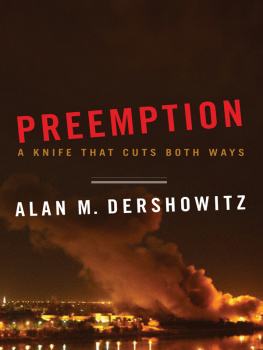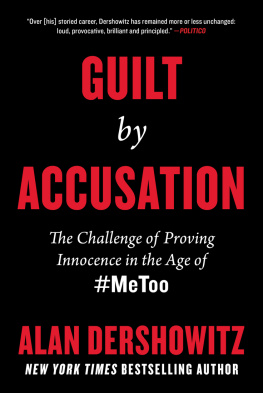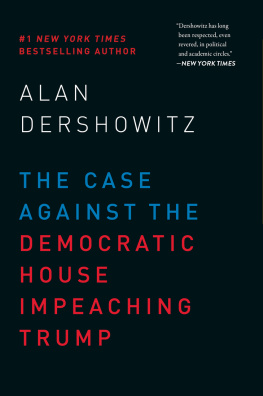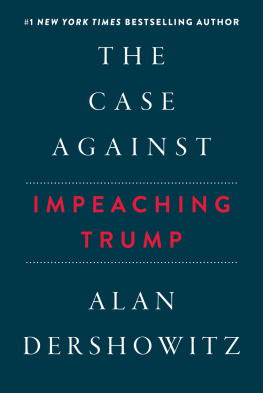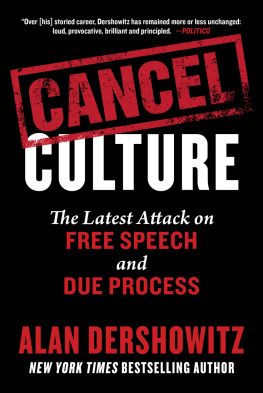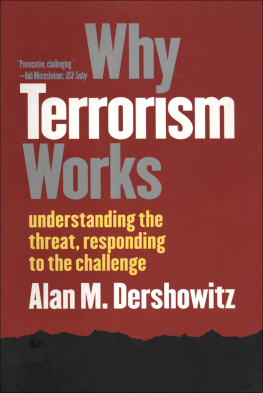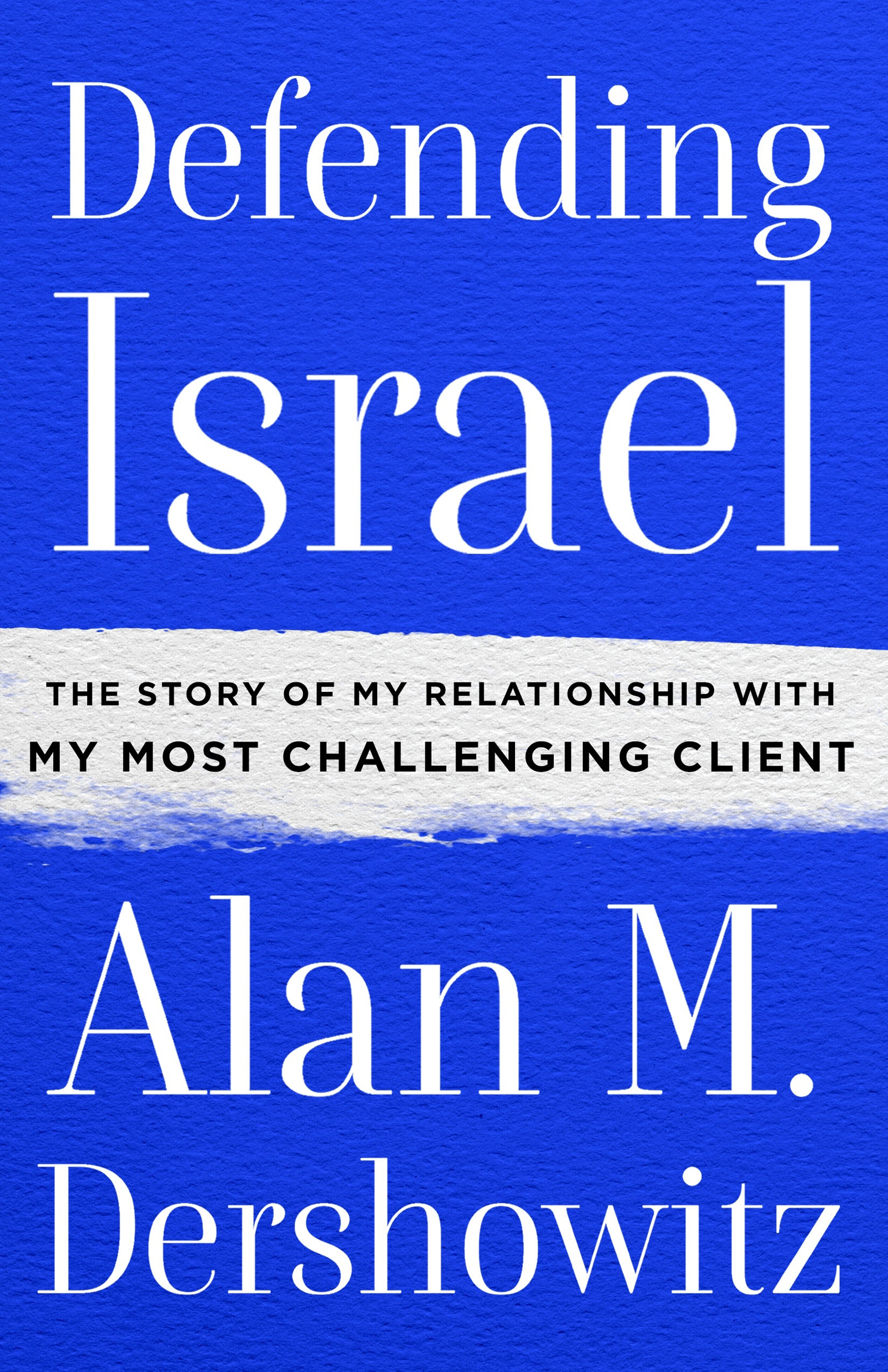The author and publisher have provided this e-book to you for your personal use only. You may not make this e-book publicly available in any way. Copyright infringement is against the law. If you believe the copy of this e-book you are reading infringes on the authors copyright, please notify the publisher at: us.macmillanusa.com/piracy.
Anti-Zionism and Anti-Semitism on the Rise
FOR LIFELONG SUPPORTERS of Israel, like me, this is the best of times. The nation-state of the Jewish people has never been strongermilitarily, economically, scientifically, diplomatically.
But Israels future is at grave risk because of diminishing support from young peoplesoon to be our leadersespecially on the left.
Anti-Semitism, often disguised as anti-Zionism, is on the rise throughout the world. A recent New York Times headline read Anti-Semitism Is Back, from the Left, Right, and Islamist Extremes. Why? Its answer, in large part, focused on the Israeli government as a point of divergence from the different strands of contemporary anti-Semitism.
The sources of this bigotry varyfrom newly elected members of Congress to rioters in Charlottesville, Yellow Vests in Paris, feminists in Chicago, gay rights activists in San Francisco, violent Muslim extremists in Sweden, radical university professors, supporters of boycotting Israeli products, academics and artists, and students taken with identity politics and intersectionality. But its effect is the same: a growing opposition to the legitimacy of Israel as the nation-state of the Jewish people and a diminution of its bipartisan support. For many supporters of Israel, that is the core of the second great mutation of antisemitism in modern times.
In much of Europe, where anti-Semitism on both the hard left and hard right is increasing, Israel has become a wedge issue, sharply dividing left from right. It is possible, indeed likely, that unless current trends can be changed, this dynamic will cross the Atlantic and infect our body politic, even more virulently than it has today. The refusal of leading Democratic presidential candidates to accept invitations to speak at the American Israel Public Affairs Committee (AIPAC), the leading lobby group for Israel, which followed by several years the absence of several prominent Democratic legislative leaders at Prime Minister Benjamin Netanyahus speech on Iran before a joint session of Congress, reflects a troubling movement within the Democratic Party away from support for Israel. At the same time, Republican support for Israel, especially among evangelical Christians, has strengthened. Israel is thus becoming a wedge in the United States as welldividing many Democrats from Republicans and dividing Democrats among themselves.
This change has created new conflicts over party allegiances for many supporters of Israel, especially among liberal Jews who have historically voted for Democrats. They continue to favor the social policies of the Democratsa womans right to choose, gay rights, gun control, environmental protection, separation of church and state, a liberal Supreme Courtbut they feel discomfort over the movement of some Democrats, especially among the young and radical elements of the party, away from support for Israel. This growing discomfort has not yet resulted in a discernable shift in party affiliation among most Jewsin part because the leader of the Republican Party is the very controversial President Donald Trumpbut it is causing deep concern about the future of bipartisan support for Israel.
If the drift away from bipartisan support for Israel is not reversed, it will pose real dangers to Israels security. Today Israel remains capable of defending itself from all external threats, with or without material support from the United States. But it is impossible to assess the impact on Israels security in the event that an American government hostile to Israel came to power.
It is a goal of this book to try to influence, in a positive direction, this discernable drift away from bipartisan support for the Middle Easts only democracy and Americas most reliable ally. It is a daunting task, but a crucial one to help secure Israels future.
I begin this task by telling the great adventure story of Israels establishmentreally, re-establishmentas the nation-state of the Jewish people, and of my long, sometimes challenging, relationship with this ever-changing democracy.
The nation-state of the Jewish people traces its origins to antiquity, but its modern history begins with a tiny, militarily weak, economically impoverished new state that was populated largely by Holocaust survivors, refugees from Muslim countries and long-time residents of Jewish Palestine. It was beloved throughout the world, except by its Arab neighbors. But now that it has become an economic, scientific and military superpower, it is regarded by many as a pariah. Like the Jewish people themselves throughout the ages, the nation-state of the Jewish people has become the victim of its own success. From the Book of Exodus, through the golden age of MuslimJewish relations, to Weimar Germany, to revolutionary Russia, Jewish self-empowerment and success have resulted in reaction, enmity and sometimes catastrophe.
As Israel grows stronger, we are seeing it treated in many quarters as a colonial, imperialist, hegemonic occupier and bully. David has become Goliath as Israels military arsenal has developed from slingshots (literally weapons contrived from surplus parts) into nuclear weapons and high-tech cyber measures and countermeasures, and its intelligence agency is considered among the most respected and feared in the world. It is as if much of the world loves weak and persecuted Jews but is fearful and jealous of strong and successful Jews who defy some old stereotypes (the Jew as nebbish and victim) while reifying others (the Jews as all-powerful controllers of the world and victors). Israel has become the Jew among nationsthe object of disproportionate attention, excessive criticism and sometimes excessive praise. More is expected of the Jewish nation, just as more has always been expected of the Jewish people. British rabbi Lionel Blue once quipped that Jews are just like everyone else, only more so. The same can be said of the nation of the Jewish people, which is subjected to a discriminatory double standard of judgment by Tutu and so many others.
Israel today is the most condemned nation in world. It is also more criticized now than ever before in its history. Some of this criticism is warranted, and it even comes from Israelis and American Jews who love Israel. I myself have taken issue with some of Israels policies. Nor has any country in history contributed so much to humankindmedically, scientifically, environmentally, academically, culturallyin so short a time as has Israel in its relatively brief existence as an independent state. Yet, it is tiny Israelwith a land mass the size of New Jersey and a population similar to that of Papua, New Guineathat is the focus of most of the worlds protests.
Throughout my life, I have been defending Israel against demonization, delegitimization and double standards. In the beginning, it was against some of my Orthodox elementary school rabbis who did not believe in the religious justification for a Jewish state until the Messiah arrived, and certainly not in the legitimacy of the secular socialist state that David Ben-Gurion declared in 1948. In Zionist summer camp, it was against hard-left zealots like Noam Chomsky, who believed in a single secular state. Later in high school, it was against right-wing extremists, such as Meir Kahane, who believed that the Jewish state must encompass all of biblical Israel.


